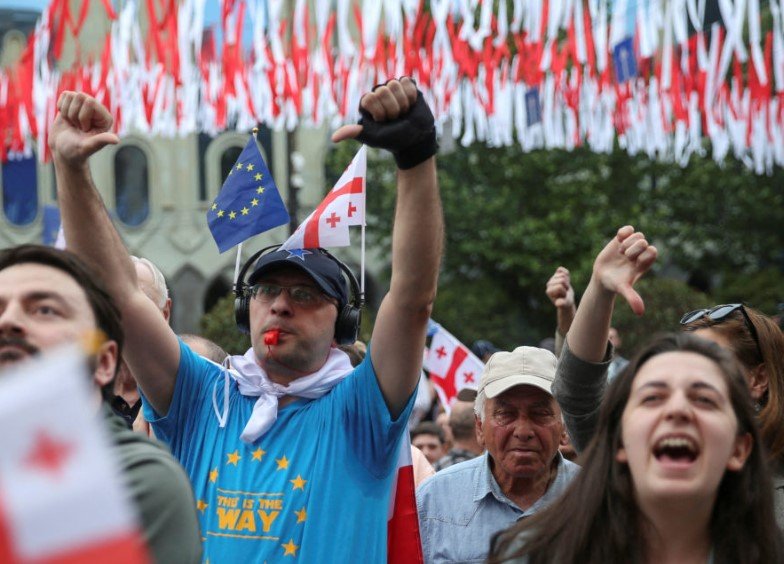In a surprise move, Anri Okhanashvili stepped down as head of Georgia’s State Security Service on August 23, 2025, after just five months in the position. He now takes on the role of national security adviser to Prime Minister Irakli Kobakhidze, amid growing regional tensions and security challenges.
Details of the Resignation Announcement
Okhanashvili shared his decision through a statement on the State Security Service’s social media page. He explained that after talks with the ruling team, he chose to leave his current post to focus on broader national security issues.
This change comes at a time when Georgia faces complex global and regional threats. Okhanashvili highlighted the need for strong analytical work to protect the country’s interests.
He took over the role in April 2025, appointed by parliament for a six-year term. His quick exit raises questions about internal shifts within the government.
New Position as National Security Adviser
In his new job, Okhanashvili will advise the prime minister directly on security matters. This role allows him to shape policy at a high level without day-to-day operational duties.

Experts say this move could strengthen the prime minister’s team. It focuses on strategic planning amid tensions with neighboring countries and international partners.
Okhanashvili brings experience from his time as a lawmaker and security leader. His background includes work on legal reforms and counterintelligence efforts.
This transition follows a pattern of personnel changes in Georgia’s security sector. Recent years have seen several high-profile shifts to adapt to evolving threats.
Appointment of Mamuka Mdinaradze as Replacement
Prime Minister Kobakhidze quickly named Mamuka Mdinaradze as the new head of the State Security Service. Mdinaradze, a key figure in the ruling Georgian Dream party, leads the parliamentary majority.
His appointment needs parliament’s approval. If confirmed, he will oversee intelligence operations and national defense strategies.
Mdinaradze has a strong political track record. He has pushed for laws on foreign influence and security measures in recent sessions.
This change aims to keep stability in the agency. It reflects the government’s push for loyal and experienced leaders in critical roles.
Broader Political Context in Georgia
Georgia’s politics remain tense after the 2024 elections, which saw the Georgian Dream party hold power amid protests and international scrutiny. Security roles have become central as the country balances ties with the West and Russia.
Recent events include sanctions on officials and debates over foreign agent laws. These have sparked resignations in other departments, like the interior ministry earlier this year.
Okhanashvili’s move fits into this landscape. It may signal a consolidation of power under Kobakhidze, who became prime minister in 2024.
International observers watch closely. Georgia’s security decisions affect regional stability, especially with ongoing conflicts nearby.
- Key factors influencing Georgia’s security landscape:
- Rising tensions with Russia over border issues.
- Efforts to strengthen NATO and EU partnerships.
- Internal challenges from opposition groups and protests.
Timeline of Recent Leadership Changes
A look at shifts in Georgia’s security leadership provides context for this resignation.
| Date | Event | Key Figure Involved |
|---|---|---|
| April 2025 | Anri Okhanashvili appointed as head of State Security Service. | Anri Okhanashvili |
| August 2025 | Okhanashvili resigns and becomes national security adviser. | Anri Okhanashvili |
| August 2025 | Mamuka Mdinaradze nominated as new head. | Mamuka Mdinaradze |
| May 2025 | Interior Minister Vakhtang Gomelauri resigns amid sanctions. | Vakhtang Gomelauri |
This table shows a pattern of rapid changes in 2025.
Public Reactions and Future Implications
Reactions to the resignation vary. Supporters see it as a smart strategic shift, while critics question the timing and motives.
Social media buzzed with discussions, some praising Okhanashvili’s dedication, others speculating on hidden reasons. Opposition voices call for more transparency in security appointments.
Looking ahead, this could impact Georgia’s response to threats like cyber attacks and territorial disputes. It might also affect relations with allies like the United States and European Union.
The government stresses continuity and strength. With Mdinaradze at the helm, the focus may turn to domestic stability.
What do you think about this leadership change? Share your thoughts in the comments below and spread the word by sharing this article with others interested in global security news.
